
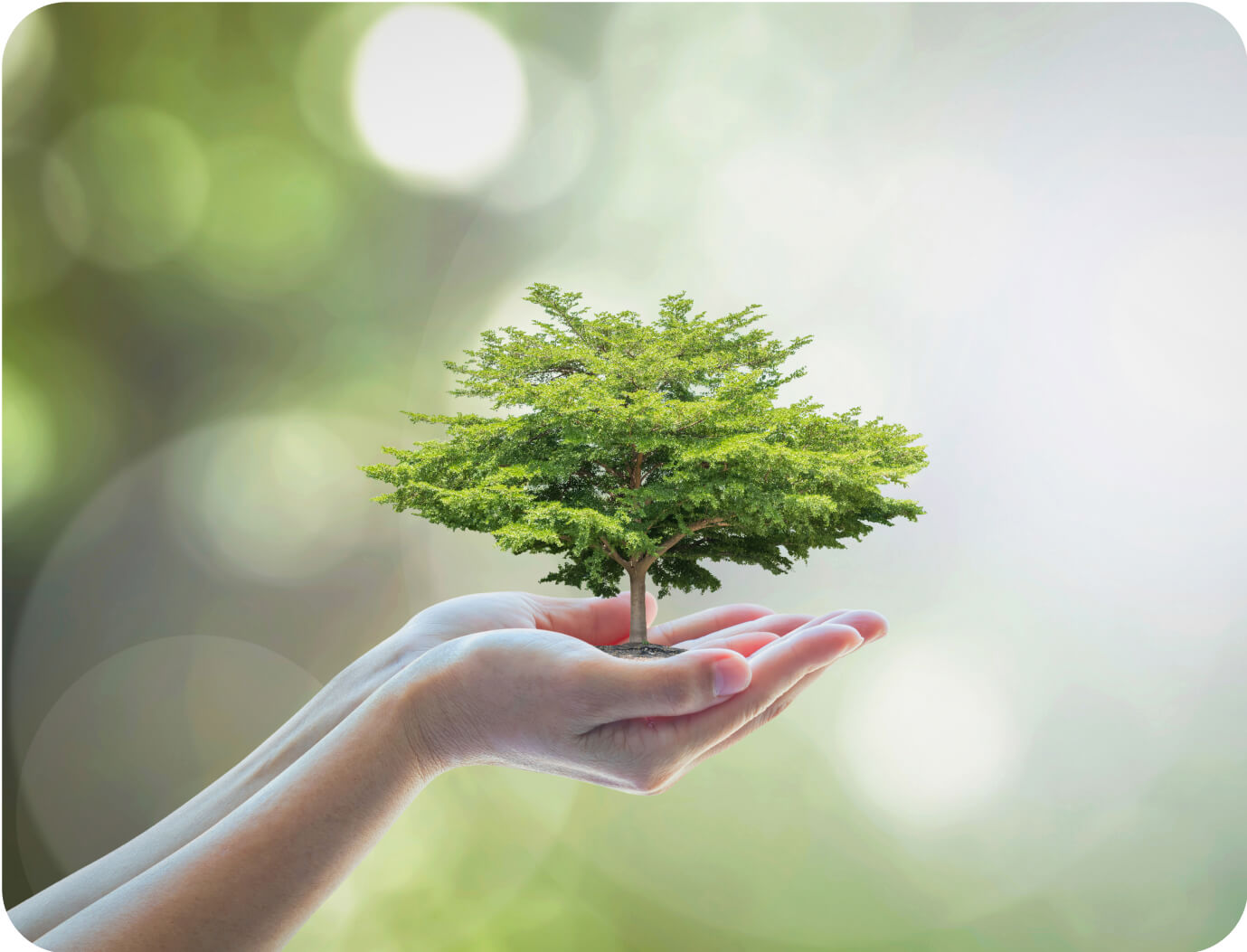
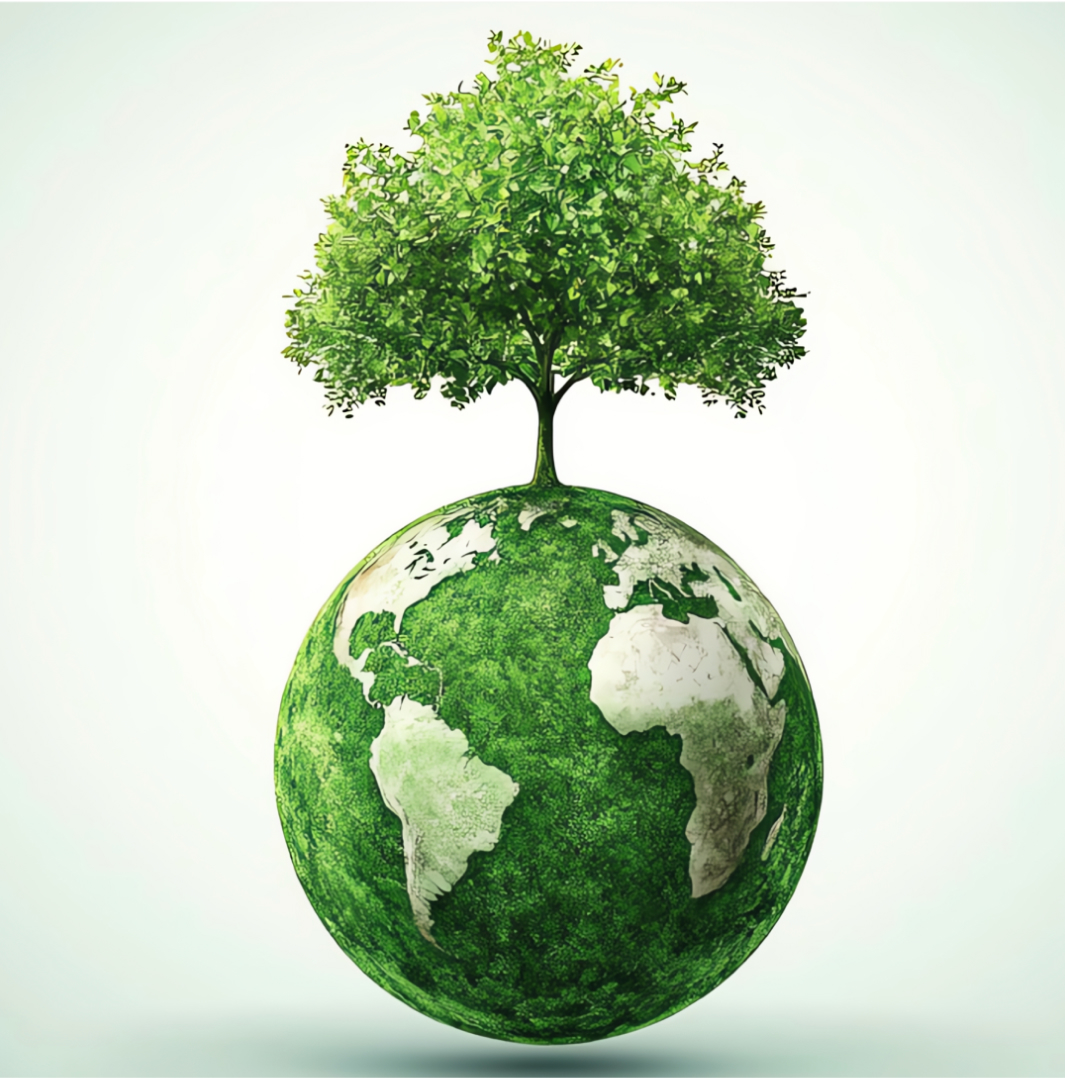
In recent years, issues such as micro-plastic pollution have become a topic often talked about. In 50 years the amount of plastic garbage in the seas will exceed the amount of marine life. To help do our part to mitigate this material crisis, we offer environmentally friendly packaging that assist brand owners and manufacturers with their sustainability initiatives and are working on recycling and using biodegradable materials.
Recyclable packaging is made of a single type of plastic – most commonly low density polyethylene (LDPE) but also high density polyethylene (HDPE). Being a monomaterial package, allows them to be recycled back into raw materials. This makes it possible to reduce the amount of waste, and, consequently, to reduce the amount of microplastics.
At the end of a product lifecycle, value can be recovered from the plastic material. Food grade plastics can be renewed and recreated in various ways.
Mechanically recycled plastics are first cleaned then physically processed and ground into mionomaterial flakes, ready to be recycled into new film and products.
Advanced recycled plastics are processed chemically to purify and extract only the valuable monomaterial components, allowing them to be recycled into virgin materials again without any change in properties.
Plant-based packaging materials were developed as and alternative to petroleum-based plastic products, allowing raw materials to come close to being carbon neutral.
As plants grow, they absorb and sequester carbon dioxide. The requisite plant matter is processed and transformed into components that can be used in inks and films.
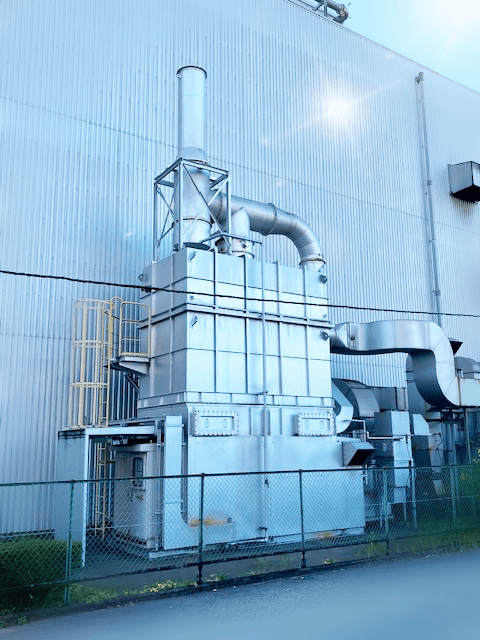
To address the issue of volatile organic compounds (VOCs) generated during the drying process, we have implemented a regenerative thermal oxidizer (RTO) to process and purify these harmful substances, thereby contributing to improved air quality.
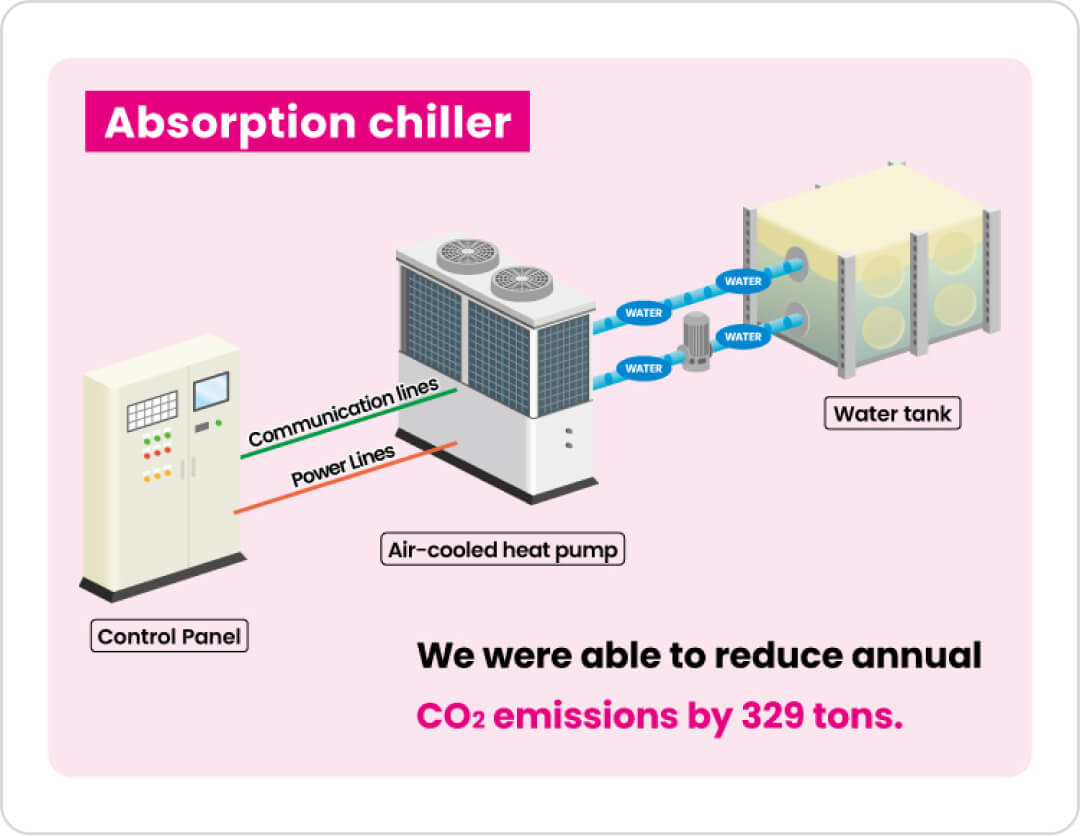
A retrofit of our absorption chiller systems and auxiliary equipments, energy-saving control functions have been enhanced and enable us to use less energy.
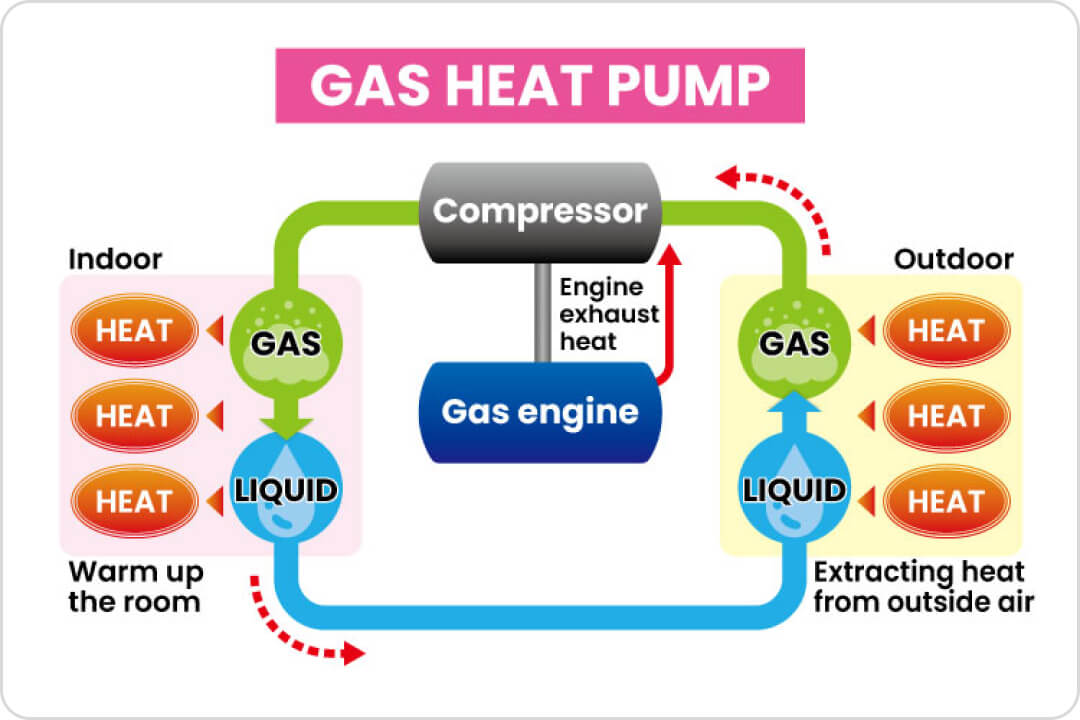
The condenser unit is driven by a gas engine and uses natural gas to reduce CO2 emissions. Furthermore, the system is highly energy efficient and environmentally friendly by recycling waste heat from the engine during heating.
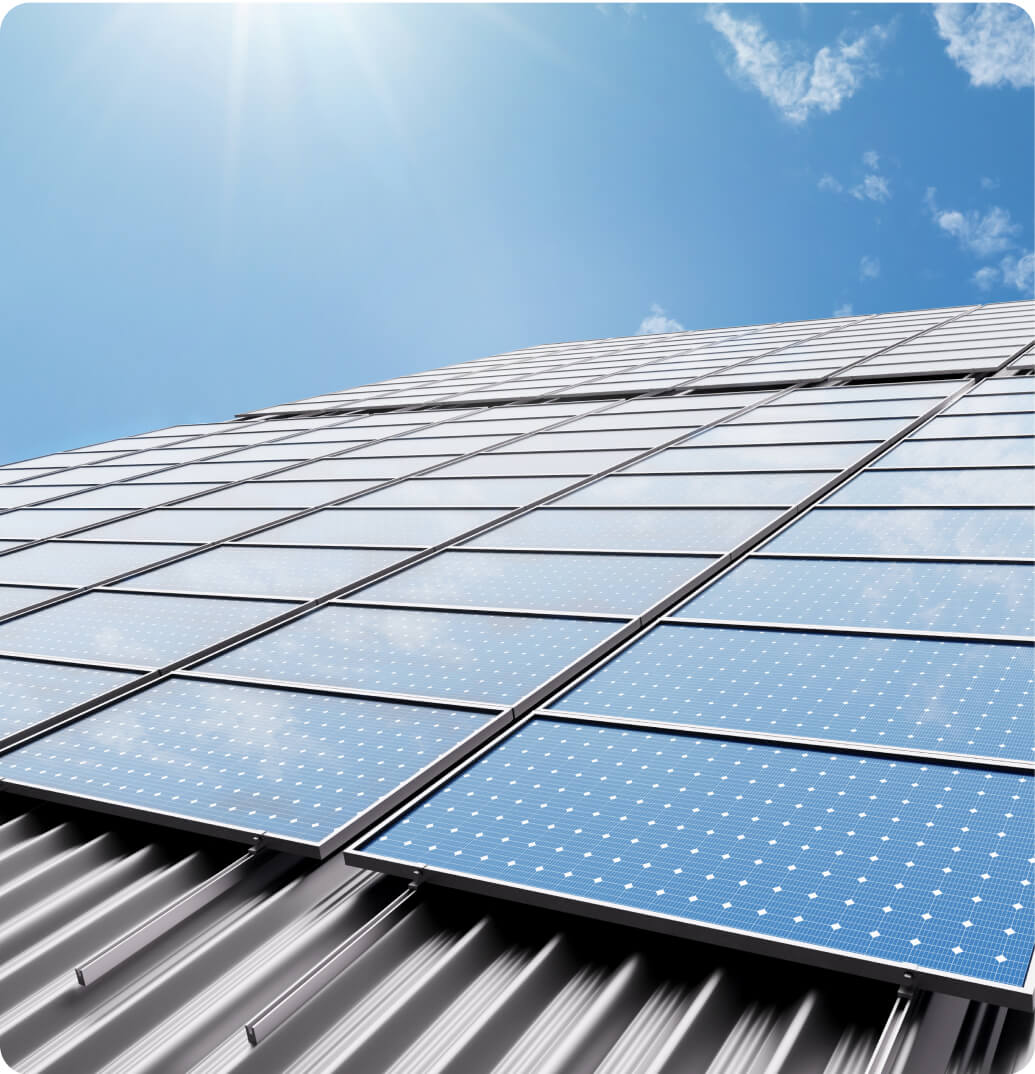
Solar panels have been installed on the rooves of our plants in Japan and Vietnam to userenewable energy and reduce CO2 emissions. The supply of clean energy from in-house power generation not only gives us a reliable energy source, but also accelerates our sustainable production activities.

Takigawa Corporation Vietnam use select inks made from plant-based materials (Botanical Ink) to help reduce CO2 emissions by 25.8 tons each year.
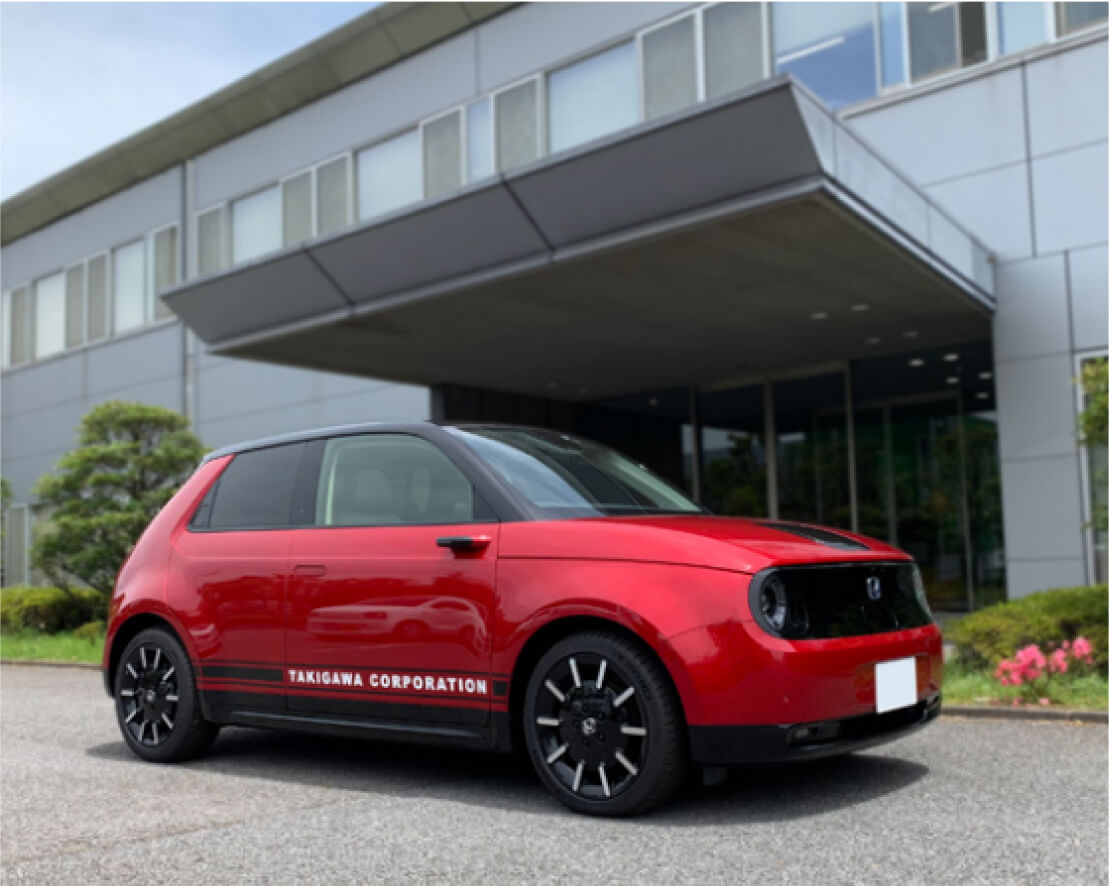
We added a HONDA-e electric vehicle as a company car at Takigawa Corporation Japan, reducing fuel consumption and CO2 emissions.
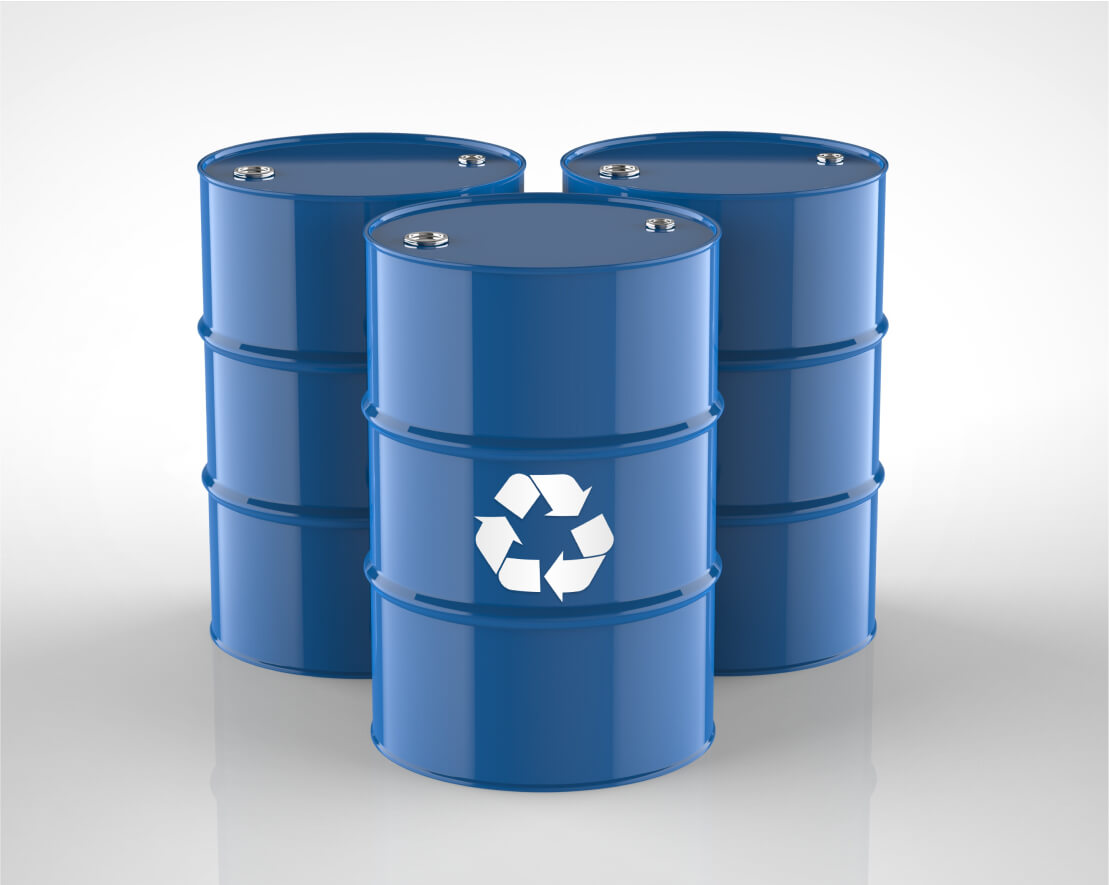
We introduced a program in Takigawa Corporation America to recycle solvent from our used and waste inks. Approximately 40% by weight of solvent is recovered and reused as recycled solvent.